Parallel and High Performance Computing
(Parallel Computing: Grundlagen und Anwendungen)
Vorlesung mit Übung im Wintersemester 2017/2018
Prof. Dr. D. Kranzlmüller,
Dr. K. Fürlinger,
T. Fuchs M.Sc.
This course will be held in English!
Welcome to the course webpage for Parallel and High Performance Computing for winter-term 2017/18 at LMU Munich. Here you will be able to find details on the lecture and the accompanying practical lab exercises.News
- The written repeat exam will take place on Thursday, April 5, 2018, at 2:30pm, in Room B001 (Oettingenstr. 67). Please register via UniWorX!
Content
Parallel computing is concerned with using multiple compute units to solve a problem faster or with higher accuracy. Historically, the main application area for parallel machines is found in engineering and scientific computing, where high performance computing (HPC) systems today employ tens- or even hundreds of thousand compute cores.
The application area for parallel computing has, however, expanded recently to essentially include all areas of information technology. Virtually all servers, desktop, and notebook systems, and even smartphones and tables are today equipped with CPUs that contain multiple compute cores. In each case, the potential for these systems can only be fully realized by explicit parallel programming. As such understanding the benefits, challenges, and limits of parallel computing is increasingly becoming a "must have" qualification for IT professionals.
This course addresses the increasing importance of parallel and high performance computing and is covering three interwoven areas: Parallel hardware architectures, parallel algorithm design, and parallel programming. The successful student will be able to identify potentials for parallel computing in various application areas, judge the suitability of contemporary hardware architectures for a parallel computing problem and understand efficient implementation strategies using modern parallel programming approaches.
The lecture is partially based on material that has been developed at UC Berkeley and which has been funded by the US National Science Foundation. The course slides will be made available for download by the date of the lecture and will be in English.Audience
The course is intended for both bachelor and master students of computer science and related fields. More formally, in German: Die Vorlesung richtet sich an Studenten der Informatik bzw. Medieninformatik (Diplom) nach dem Vordiplom sowie an Studenten der Informatik, Bioinformatik bzw. Medieninformatik (Bachelor, Master) im Rahmen der vertiefenden Themen der Informatik. Für Vorlesung und Übung werden 6 ECTS-Punkte vergeben.Important Dates
Please note that the dates and locations for lecture and lab exercises listed below are provisional and may change prior to the start of the course!- Lecture: Friday 9:30 - 12:00, Oettingenstr. 67, Room B001. First lecture: Friday, October 20, 2017, starting at 9:15 in Room B001
- Lab exercise: Thursday 14:30 - 16:00, Amalienstr. 73A, Room 112. First lab: October 26, 2017, starting at 14:15 in Room 112
- Please keep an eye on News for any short-term changes and announcements.
- Friday February 2, 2018, 10:30am: Guest lecture by Prof. Martin Schulz, TU München
Title:Challenges and Opportunities in Creating an Exascale
Capable Software Stack
Abstract:With exascale capable hardware around the corner,
funding agencies around the world are focusing on projects creating
the necessary software requirements. In the US, these efforts are led
by the Department of Energy funded Exascale Computing Project (ECP),
which targets both the creation of exascale capable applications and
the development of the necessary underlying software stack. In this
lecture I will give an overview of ECP and its components and then
will discuss details on two areas I was personally involved in: the
creation of a new generation of visual performance tools as well as
the development of a power- and energy-aware resource management
strategy.
Bio:Martin Schulz is a Full Professor at the Technische
Universität München (TUM), which he joined in 2017. Prior to
that, he held positions at the Center for Applied Scientific Computing
(CASC) at Lawrence Livermore National Laboratory (LLNL) and Cornell
University. He earned his Doctorate in Computer Science in 2001 from
TUM and a Master of Science in Computer Science from UIUC. Martin has
published over 200 peer-reviewed papers and currently serves as the
chair of the MPI Forum, the standardization body for the Message
Passing Interface. His research interests include parallel and
distributed architectures and applications; performance monitoring,
modeling and analysis; memory system optimization; parallel
programming paradigms; tool support for parallel programming;
power-aware parallel computing; and fault tolerance at the application
and system level. Martin was a recipient of the IEEE/ACM Gordon Bell
Award in 2006 and an R&D 100 award in 2011.
Lab Exercises
The lecture is accompanied by a lab exercises to deepen the understanding of topics covered in the lecture. High performance computing systems hosted at the Leibniz Supercomputing Center will be made available to the students. Worksheets for the lab exercises will be made available on UniWorX.Downloads
Lecture slides will be made available chapter-by-chapter through this webpage.Further Reading

Paul E. McKenney (Ed.): Is Parallel Programming Hard, And, If So, What Can You Do About It? (online) 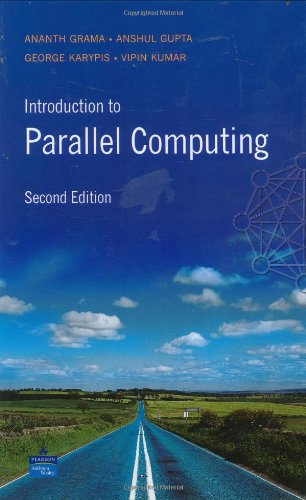
Ananth Grama et al.: Introduction to Parallel Computing (2nd Ed.) 
David Culler and Jaswinder Pal Singh: Parallel Computer Architecture, A Hardware/Software Approach 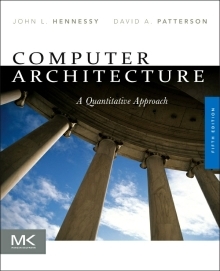
John Hennessy and David Patterson: Computer Architecture a Quantitative Approach (5th Ed.) 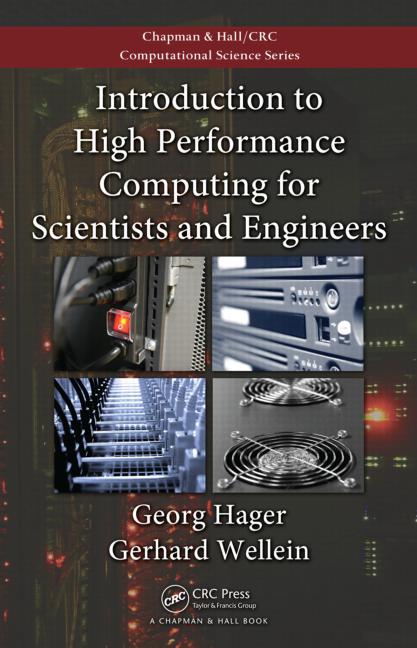
Georg Hager and Gerhard Wellein: Introduction to High Performance Computing for Scientist and Engineers 
Barbara Chapman et al.: Using OpenMP 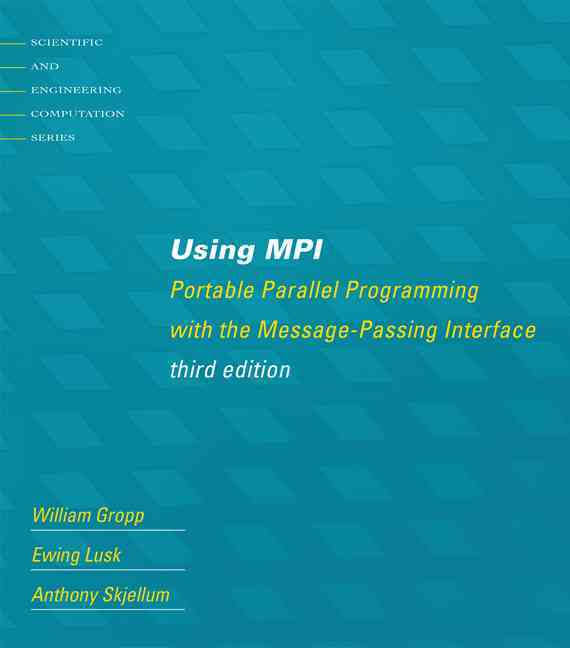
William Gropp, Ewing Lusk, Anthony Skjellum: Using MPI 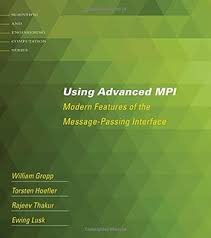
William Gropp, Torsten Hoefler, Ewing Lusk: Using Advanced MPI Registration
Please register for the course on UniWorX.Contact
Via email and/or after the lecture and lab exercises.